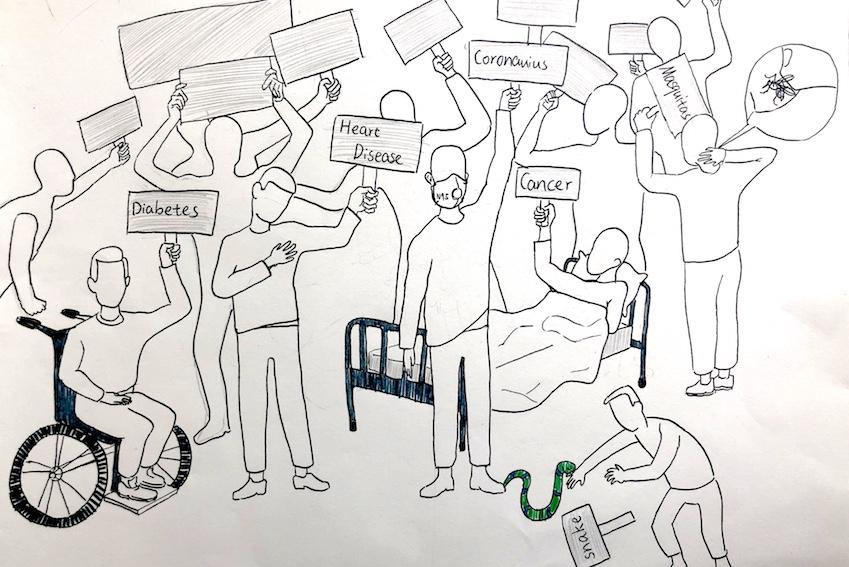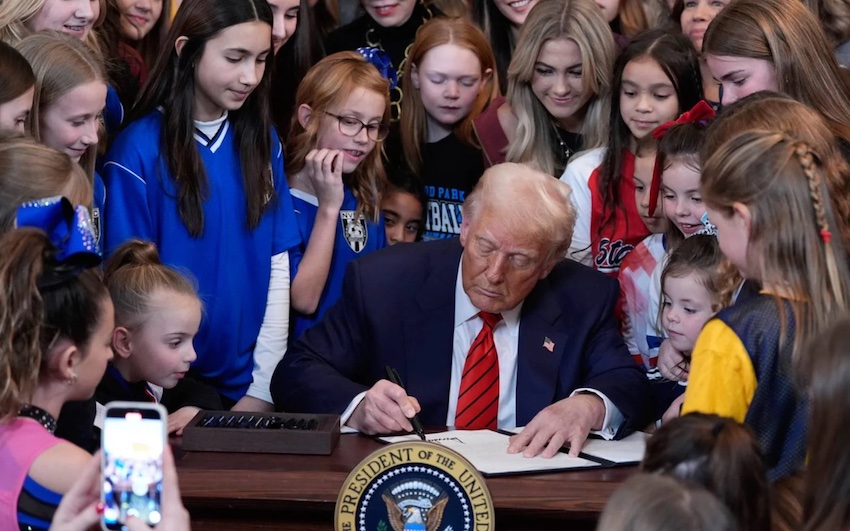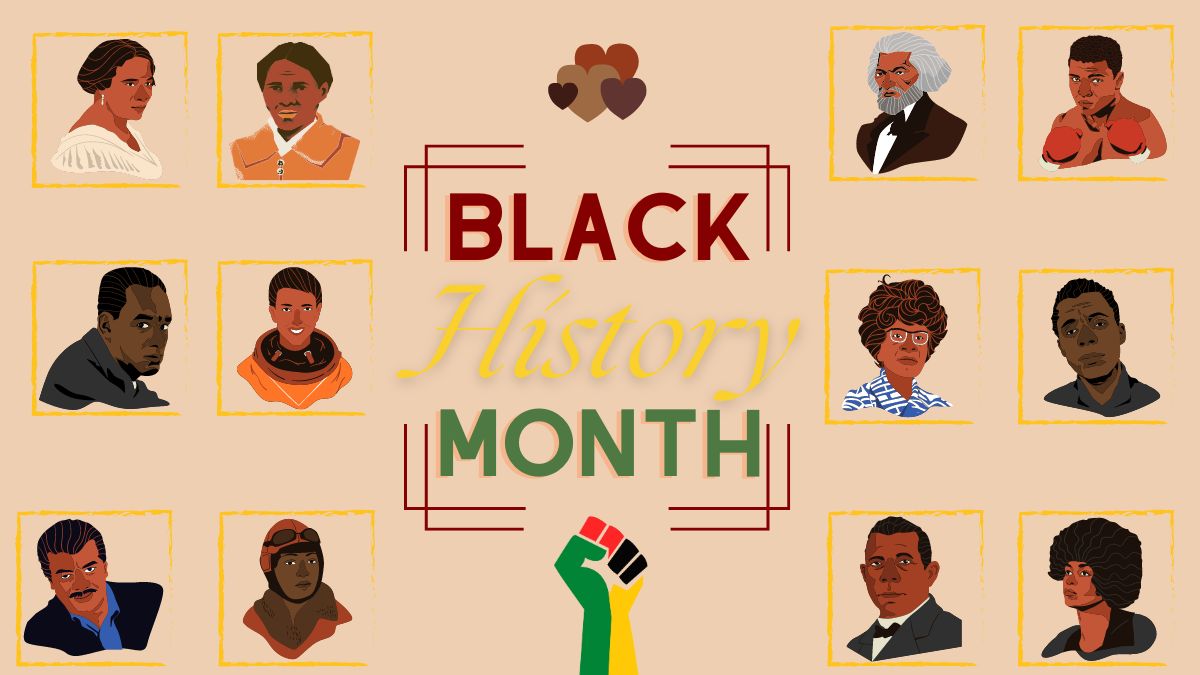Generalizations harm individuals, cause violence

On February 28, the Instagram account Humans of New York posted a story of a young man of African American descent who recounted a story from his childhood. While the narrative begins on a high note, of the man recalling a Friday tradition of KFC with mom and his siblings, he continues to describe a scene of a stranger offering to buy the kids a plentiful dinner.
He says looking back, he understands the woman’s kind intentions but realizes his family was racially profiled, as he said the woman assumed they were a struggling, poor family, when in reality, they were stable, secure and happy.
Even today, with many people seeing prejudice as a thing of the past, stereotyping motivates violent, unnecessary actions against those who commit no wrong. Today with increasing panic over the coronavirus, various prejudice-fueled attacks on Asian people have occurred.
While at a New York subway station, Feb. 2, witnesses claim that an East Asian woman wearing a face mask was called a “diseased b***h” by a man who proceeded to hit her. Afterward, a witness videoed the women pursuing her attacker before being attacked again.
According to the Cambridge English Dictionary, a stereotype is defined as “a set idea that people have about what someone or something is like, especially an idea that is wrong.”
Not necessarily negative, brains use stereotypes as a way to survive and rapidly process the world around us. For example, if you saw a donut, you would assume that it could be eaten. Unfortunately, we have expanded these generalizations to include gender, race, class and other factors.
Stereotypes surrounding race, gender, political opinion and social identification often arise as the root cause of prejudice. Seen in the civil rights movement of the ‘50s and ‘60s, the #MeToo movement and current presidential elections, generalizing people groups spark conflict amidst controversy.
Although some argue that stereotypes, such as those which influence age requirements for driving and voting, are necessary to maintain collective order, this universal mindset removes the opportunity to value individuals apart from their “label”.

While utilizing the concept of age as a determining factor for maturity aids general understanding, applying this thinking to personal beliefs subtracts from full exposure to all peoples’ views.
Reinforced by personal communities or skewed perceptions of people, stereotypes encourage humans to view others through a lens that is obstructed by preconceived notions of how they should act or think.
Often people subconsciously associate others with negative connotations due to both experience, education and cultural influence; we adopt generalizations and are unaware of their control.
In order to combat negative generalizations, it remains important to recognize a person’s own stereotyping and how that negatively impacts their view of the world. Making an effort to ask questions and stay open to different people and new experiences helps resist detrimental assumptions and increases personal and communal growth.
Due to the influx of coronavirus cases and fear-mongering tactics used by the media, Clinical Director of the Division of Infectious Diseases at Brigham and Women’s Hospital Dr. Paul Sax wrote an article discussing some frequently asked questions and his concerns surrounding the coronavirus.
Take some time while going throughout your day to consciously observe the generalizations you make. Examine how your assumptions impact your actions in relation to others. Share your observations in the comments below!
For another editorial, read EDITORIAL: Firearm restrictions hinder protection against potential threats.
For more articles, read Mason Blowers exhibits talent in multiple sports, campus groups or Join the Discussion: Serve Day 2020.







Kenneth Hu • Mar 9, 2020 at 8:34 am
This is great. Thanks for sharing. Thanks for helping everyone to know the problem.
Jacob Hyatt • Mar 6, 2020 at 1:26 pm
Such a good and informative article!
Addison Schultz • Mar 6, 2020 at 1:23 pm
This is such a great piece. Thank you for bringing awareness to the ways we stereotype, often without knowing it!
Mars Hou • Mar 5, 2020 at 8:22 am
This is a great article. This article can help us think deeply. People need to look at this issue rationally. good job!
Kyler Garza • Mar 5, 2020 at 8:18 am
This is a great article. It’s an interesting topic to cover during this time, and good to spread awareness about it. I really liked how it involved us by asking to think about what we thought about the issue.
Sarah Smith • Mar 5, 2020 at 7:48 am
Wow this is an amazing article! Stereotyping and prejudice still lives in the world today, the courage to talk and address it is amazing! I also really liked the encouragement to recognize ourselves when we have stereotypical thoughts.
Toryn Triplitt • Mar 5, 2020 at 7:23 am
This article is very well written. A light needs to be shone on some of the more harmful stereotypes. As someone with a disability, I have been stereotyped for almost my whole schooling career. Thank you for shining light on the downsides of allowing stereotypes to play such a big role in our society.
Morgan Parker • Mar 5, 2020 at 7:21 am
Such a great thing to recognize and raise awareness of. Great article! It’s important to realize how much prejudice there is around and how to combat it and avoid judging others.
Paige Provost • Mar 5, 2020 at 7:20 am
Great article. I think it is important we all assess if we stereotype and self-reflect if we generalize thoughts or statements.
Serena Zhao • Mar 5, 2020 at 7:20 am
Nice Article. Stereotype is inevitable and we need to learn to be more open minded. Such a nice way of using all the examples!
Zoe Bull • Mar 5, 2020 at 7:13 am
Great article! The formatting is excellent, and I love how you worded it. Unseen prejudice is absolutely something that still occurs, whether realized or not, in our everyday lives. Once again great job on the editorial, feather staff.
Brayden Iest • Mar 5, 2020 at 7:12 am
Great editorial! It is interesting to see how a survival instinct has turned into a social issue. I hope this aids others in identifying the stereotypes in our day to day lives.